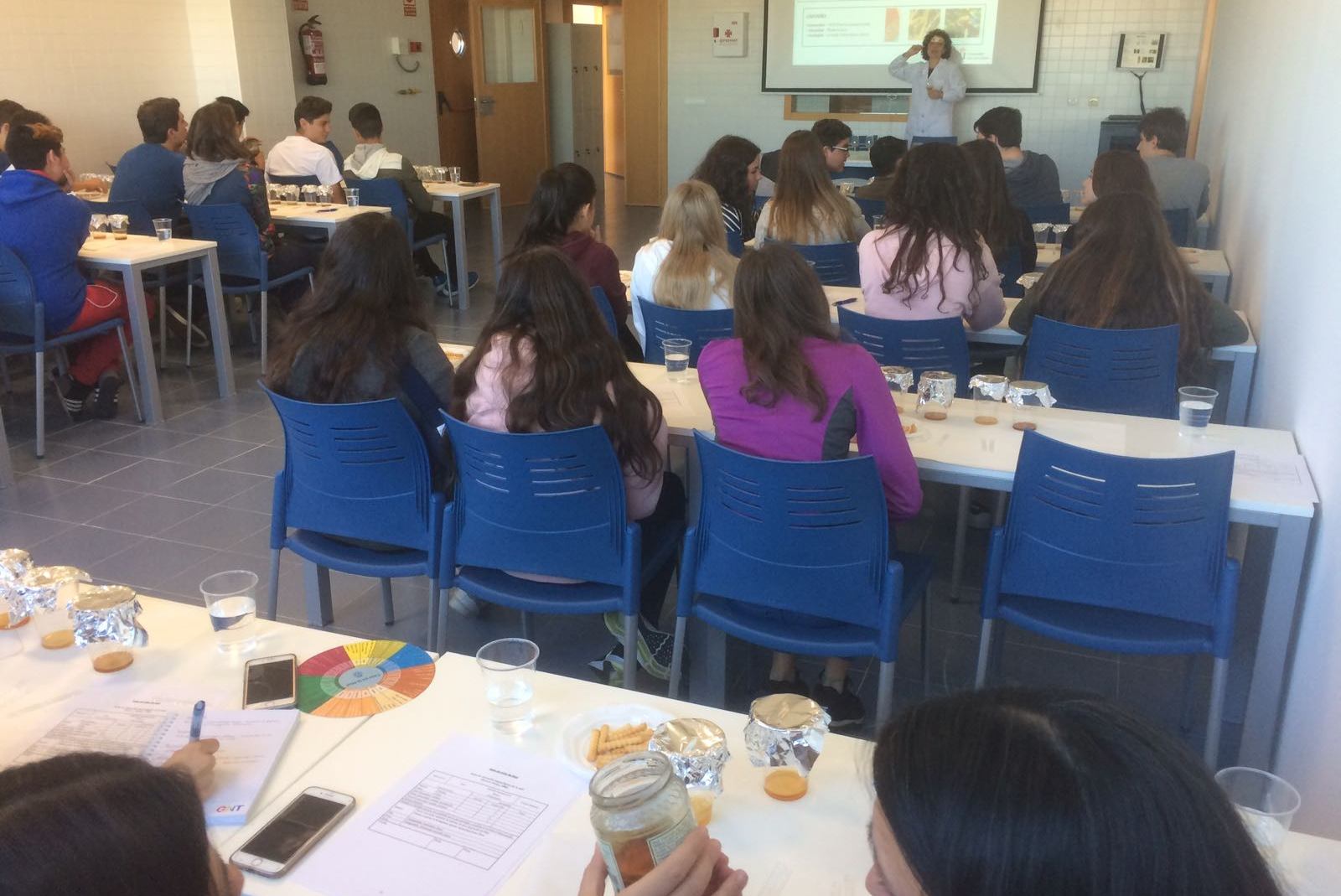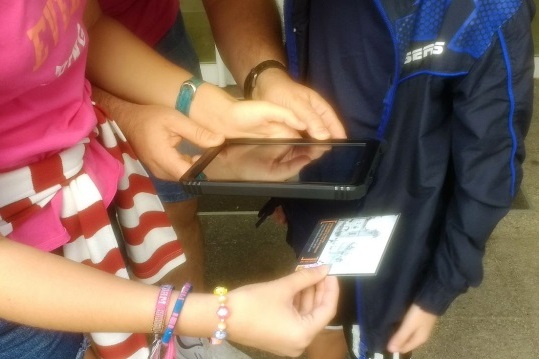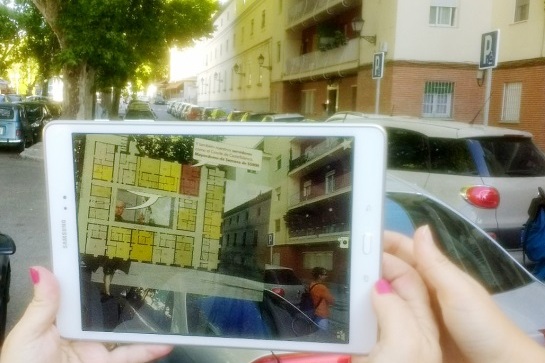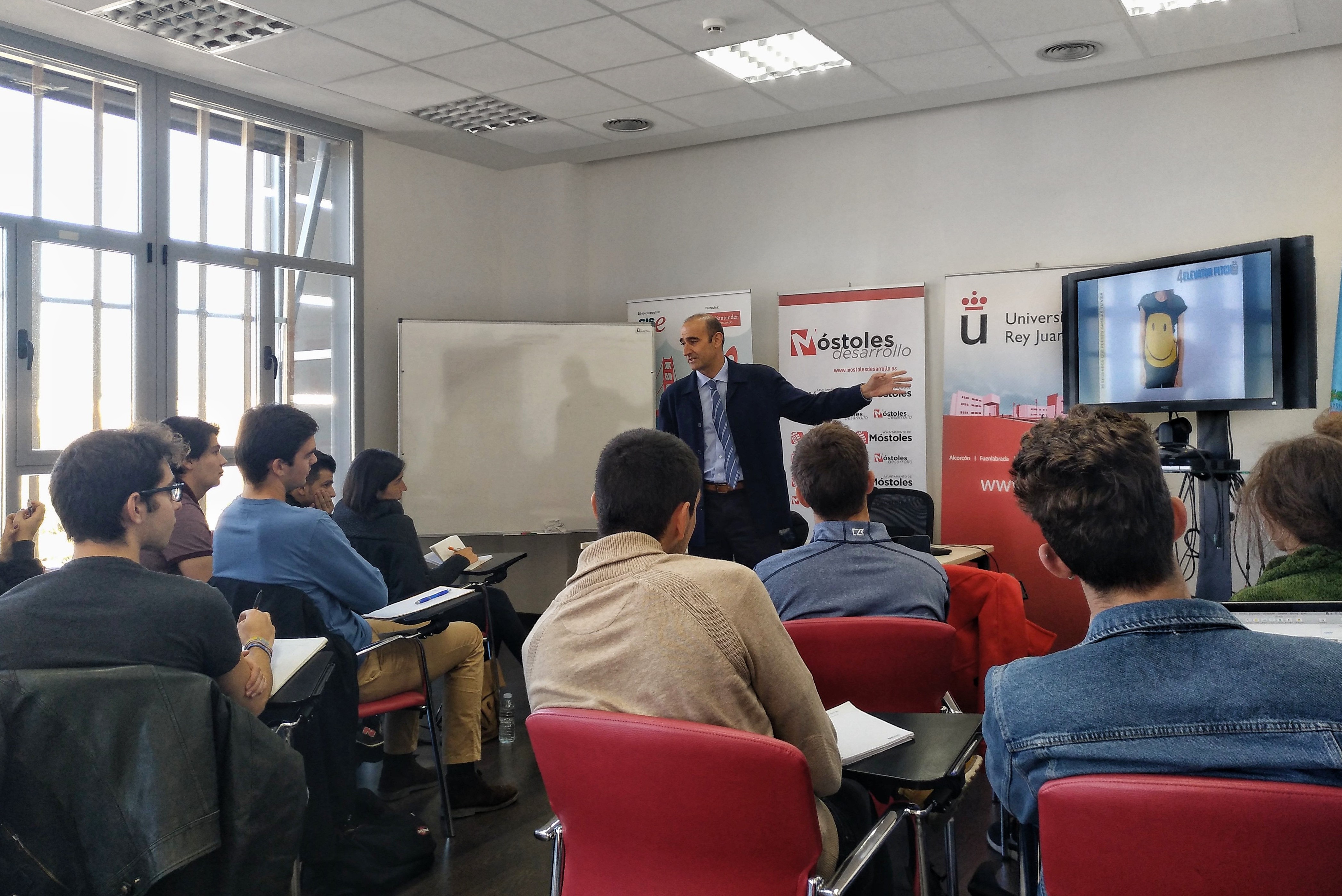Irene Vega
Among the latest activities held at the URJC during the XVII Madrid Science Week are workshops on food and materials technologies or on how to apply the scientific method to a job. Regarding this practice, professors from the Physiotherapy area of the URJC have exemplified the use of the scientific method in the work "Theory of Walking" by Honoré de Balzac, a French novelist of the XNUMXth century. In this sense, Balzac made an analytical observation of the way of walking, defined the concept of walking, mentioned how many phases it is divided into, indicated the factors that modify it (such as personality, state of mind, profession or social class), and described the correct way to walk.
In the field of food technology, an activity has been organised, consisting of two workshops given by researchers from the URJC Analytical Chemistry area. In a first, the students have been able to study some aspects to take into account to carry out a honey tasting. Attendees have learned to evaluate product attributes from the visual, olfactory, gustatory and tactile phase. This workshop has been developed in the new Sensory Analysis Laboratory of the Móstoles Campus, which has a classroom area, 17 standardized tasting booths and a food preparation room. In the second phase of the activity, the attendees have carried out experiments in the laboratory for the analysis of food, such as, for example, the determination of its acidity or humidity.

Activity "Madrid FEEDS science, SCIENCE feeds Madrid"
Another of the practices carried out has been the selection of different materials to address the current challenges in the fields of energy production or transport. Researchers from the URJC Materials Science and Engineering area have proposed a contest in which the participants have had to face four challenges. With this activity, the students have learned the operation of some fundamental aspects in current engineering, such as superconductivity or the corrosion of magnesium alloys.
The Royal Sites, feminism or the influence of emotions
Each day of celebration of the Madrid Science Week has had a variety of topics. At the URJC, several days have been dedicated to carrying out educational itineraries through the Royal Sites, such as Aranjuez. In this town in Madrid, a tour has been made, led by professors from the Architectural Graphic Expression area, with the aim of showing Heritage as something alive and accessible through the use of new technologies. Specifically, they have used Augmented Reality tools, which allow visualizing, with the use of a mobile or tablets, different digital layers of information on a real physical environment.
The cultural landscape of Aranjuez, a UNESCO World Heritage Site in 2001, is an especially attractive example for the use of new technologies because its historical legacy coexists with the functioning of a XNUMXst century city. Through the Augmented and Virtual Reality laboratory, the URJC is currently participating in the implementation of a pilot program for Sustainable Heritage.
 |
 |
Didactic itinerary: "The Royal Sites as sustainable tourism destinations: Aranjuez"
On the other hand, a round table was held on the contributions of feminism to avoid gender bias in research in Social and Legal Sciences. In addition, a workshop on emotional regulation techniques has been given. In this last one, emotions have been worked on and some problems that overweight and obesity entail for health have been addressed.
Entrepreneurs for a week
El Móstoles Business Incubator, which has the support and technical assistance of the Rey Juan Carlos University, has organized the fifth edition of its program Resident Entrepreneurur. This program provides students with the opportunity to approach business reality.
This year's edition, framed in the calendar of activities of the Madrid Science Week, has been designed around four face-to-face workshops and led by specialists in different areas of entrepreneurship. The students have learned some fundamental aspects such as the business model and obtaining clients, the business plan or the commercial strategy. Finally, the participants have had to put into practice the knowledge learned and defend their project before a jury.




